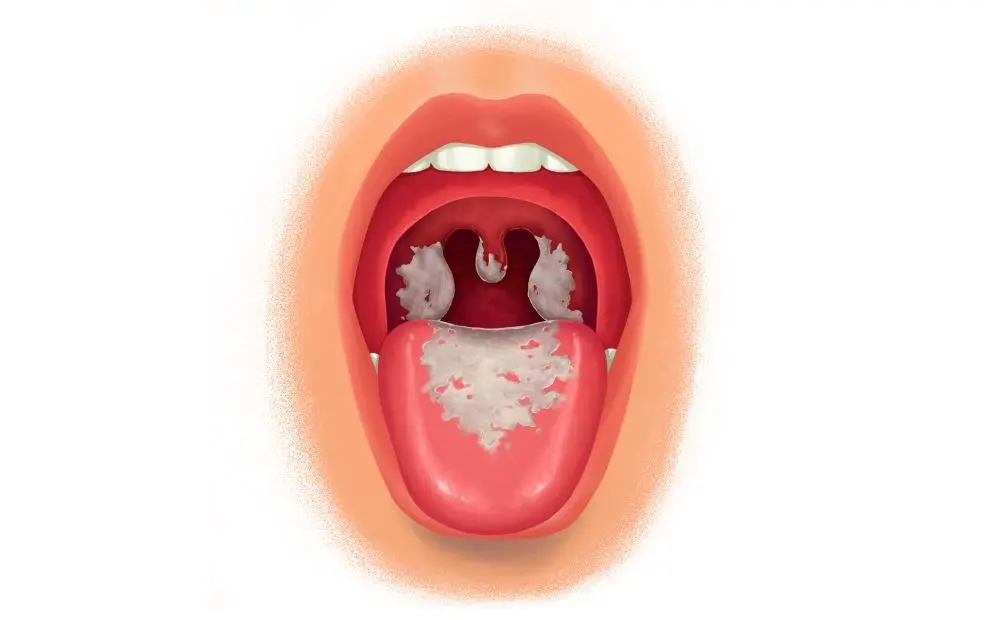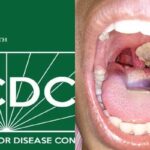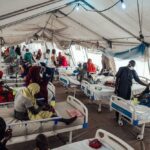Diphtheria outbreak resurfaces in Nigeria, spreading to 13 states with 4,717 cases

Nigeria is grappling with a resurgence of diphtheria, marking a second wave of this contagious disease. This recurrence comes after an initial outbreak that spanned from epidemiological week 52 in 2022 through May 2023. According to the latest situation report from the World Health Organization (WHO), there has been a significant surge in the affected population, accompanied by an alarming uptick in confirmed cases and related fatalities.
The Escalating Diphtheria Crisis
The WHO report reveals a distressing total of 4,717 diphtheria cases out of 8,353 suspected cases reported in Nigeria since the initial outbreak in 2022. The majority of these cases have been concentrated in several states, including Kano, Katsina, Yobe, Bauchi, Kaduna, and Borno.
Between June 30 and August 31, 2023, Nigeria witnessed an unusual spike in confirmed diphtheria cases across 59 Local Government Areas spanning 11 states.
Read >>> WHO report – Diphtheria
The Dangers of Diphtheria
Diphtheria is a highly contagious and vaccine-preventable disease primarily caused by the bacterium Corynebacterium diphtheriae. It poses a substantial risk, with a fatality rate of five to ten percent, which tends to be higher among young children.
Despite WHO’s risk assessment maintaining a high risk at the national level, the threat remains low at the regional and global levels. However, public health measures, including vaccination campaigns, enhanced surveillance, case management, and risk communication, are actively underway to counteract this outbreak. These efforts are a coordinated endeavor led by the Nigeria Centre for Disease Control and Prevention, in partnership with WHO and other stakeholders.
Case Breakdown and Vaccination Status
Among the 4,717 confirmed diphtheria cases, a significant portion, 3,466 (73.5 percent), were children aged one to 14 years, with 699 in the zero to four age group, 1,505 aged five to nine, and 1,262 aged 10 to 14. Furthermore, more than half of these cases (56.3 percent) were females.
Alarmingly, only 1,074 (22.8 percent) of the confirmed cases had received full diphtheria vaccination, while 299 (6.3 percent) had partial vaccination. The majority, a concerning 59.4 percent, were unvaccinated.
The Importance of Timely Treatment
Effective treatment for diphtheria involves administering diphtheria antitoxin and antibiotics. Nevertheless, vaccination remains the most efficient way to drastically reduce the mortality and morbidity associated with this disease.
Notably, Nigeria has encountered diphtheria outbreaks in the past, with notable incidents in 2011 and 2022.
Addressing the Crisis
The Coordinating Minister of Health and Social Welfare, Prof. Ali Pate, has taken swift action to combat the diphtheria resurgence. An emergency task force has been established, co-chaired by Dr. Faisal Shuaib, Executive Director of the National Primary Health Care Development Agency, and Dr. Ifedayo Adetifa, Director General of the Nigeria Centre for Disease Control and Prevention.
This task force includes key representatives from various sectors, including WHO, UNICEF, the Federal Ministry of Information, and the Northern Traditional Leaders Committee on Primary Healthcare Delivery, among others.
Immediate Response Needed
As Nigeria confronts this alarming diphtheria resurgence, the task force is mandated to operate with a sense of urgency to contain the outbreak and prevent its further spread to other states. Mass mobilization and public awareness campaigns will be crucial in curbing the crisis, especially as children return to school.
Prof. Pate emphasizes the importance of collaboration and concerted efforts, stating, “We must mount a rapid response as our children are returning to school.”
Diphtheria cases have now been identified in 14 states, with Kano serving as the epicenter of the outbreak. The affected states include Lagos, Osun, Federal Capital Territory, Nasarawa, Kaduna, Katsina, Yobe, Bauchi, Gombe, Borno, Zamfara, Jigawa, Plateau, and Kano.
The urgent need for action is clear, as Nigeria grapples with the resurgence of this potentially deadly disease.



